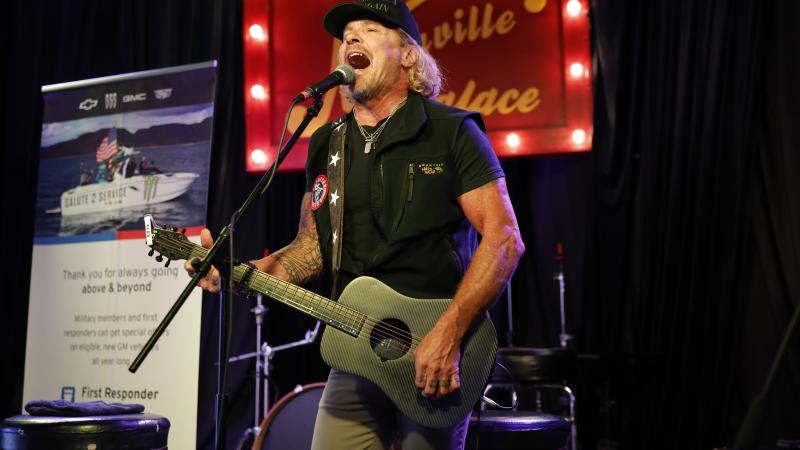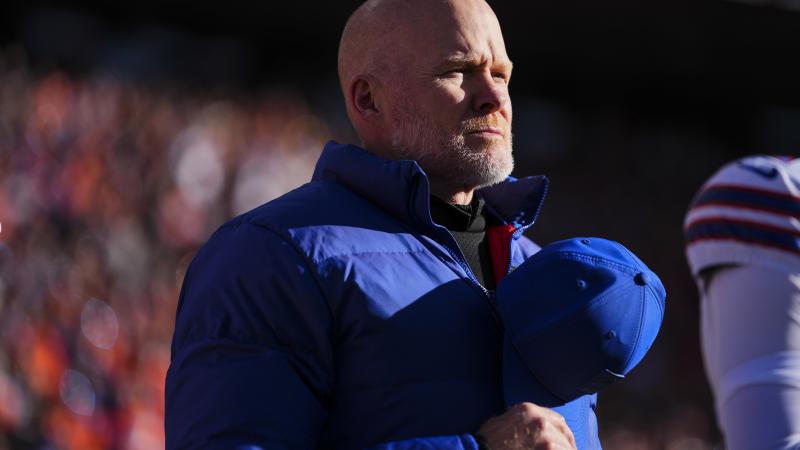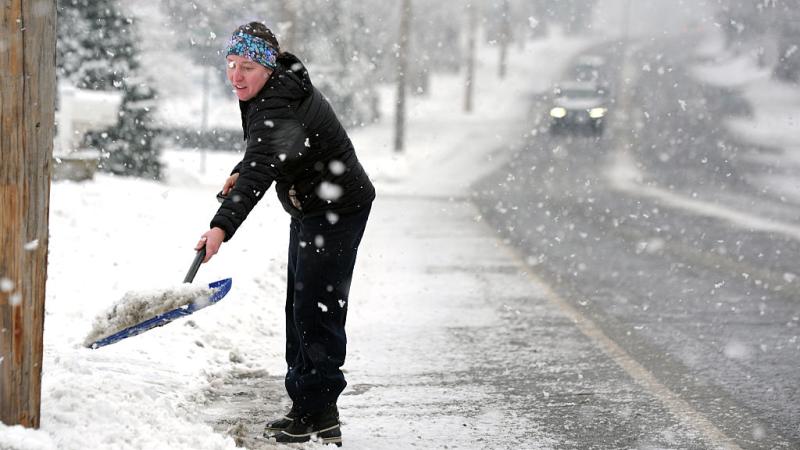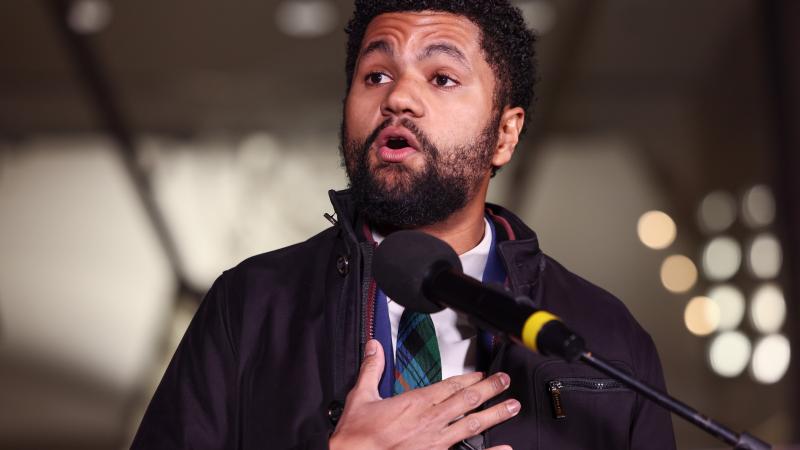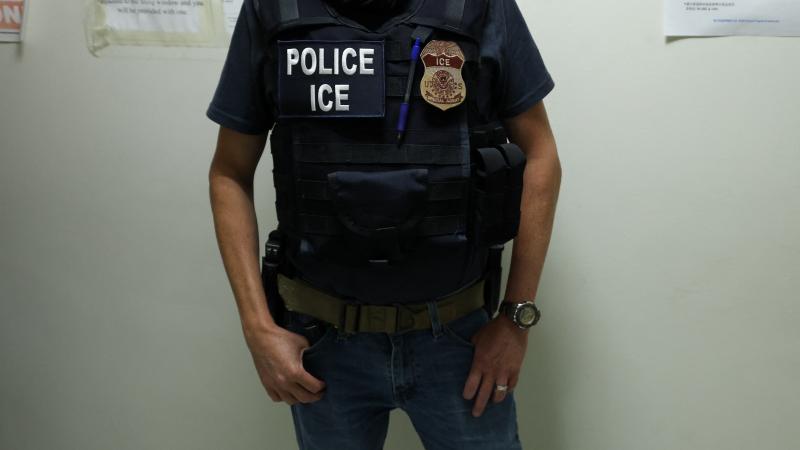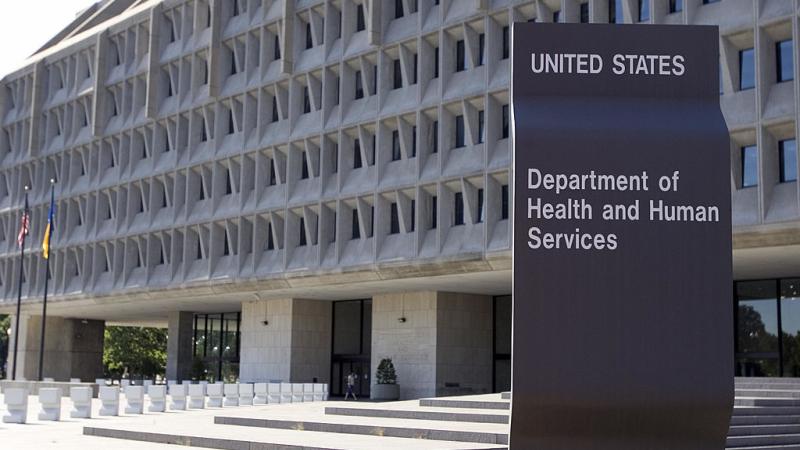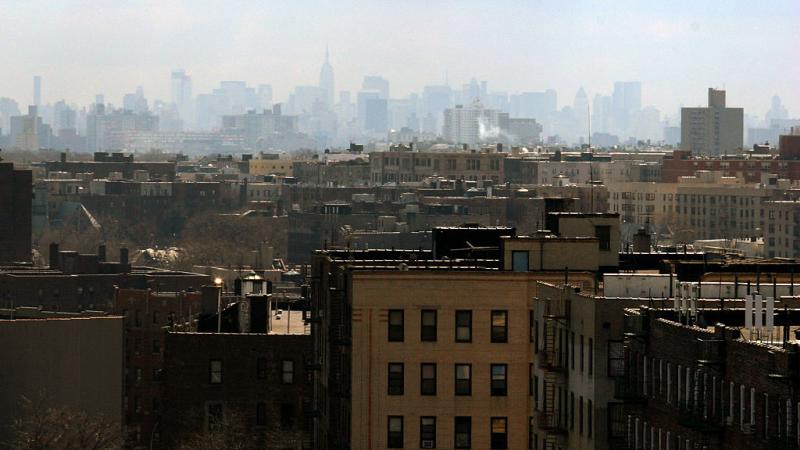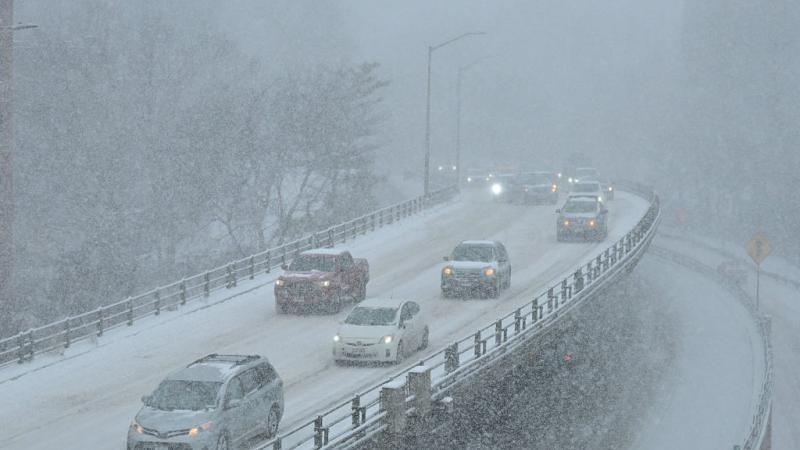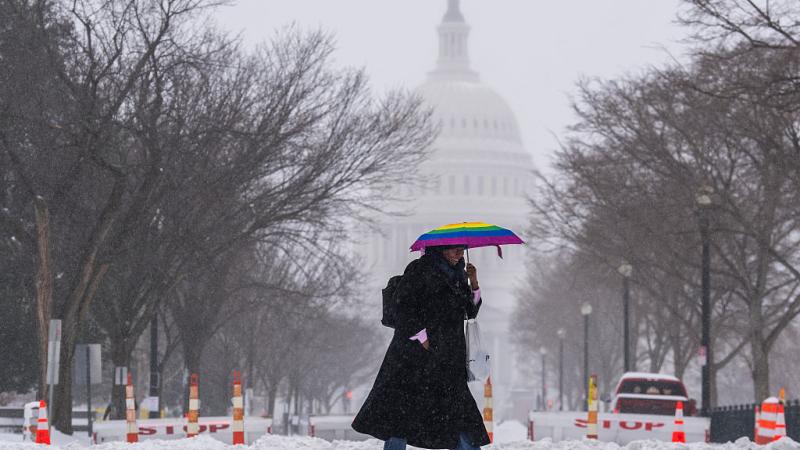After a series of spitting incidents in sports, leagues take decisive action hailed by experts
The NFL and NCAA both experienced nationally televised spits in their games on the same week, why is it happening?
The NFL season got off to an ugly start when Philadelphia Eagles defensive lineman Jaylen Carter in Game 1 spat on Dallas Cowboys quarterback Dak Prescott.
The incident, in fact, didn't even mark the start of the game, considering it happened before the first snap. But it was the most notorious and high-profile is a series of similar incidents that the NFL, at least, appeared determined to stop immediately, which a top sports psychology professor argues is the best strategy.
“Emotions have always been part of the game, and unfortunately there are some times when players take it just a little bit too far,” said Elizabeth Brown, a University of Maryland sports psychology professor.
“The more attention you give to it, the more it will get out of control. What you have to do is show people that you’re not going to be recognized for it and we’re not going to applaud you for doing it.”
To be sure, the Eagles were hit with a 15-yard penalty before the first snap from scrimmage. The Cowboys scored on their opening drive, and Carter was immediately ejected from the game.
In addition, the National Football League fined Carter $57,222 and suspended him for one game, which he had technically already served considering he was ejected before play started.
"The NFL’s distinction of a one-game suspension sets a precedent and makes it clear to players that spitting on an opponent will result in similar discipline," senior Associated Press NFL writer Rob Maaddi said after the game.
The Eagles, meanwhile, decided to deal privately with the issue and Carter, who has a history of being undisciplined on the field.
“I’m going to keep everything that I do with him private, coach Nick Sirianni said. “Everything, every conversation, whether it’s a personal conversation, a disciplinary thing, all those things will always be handled privately. I just think that’s the way to go about doing team business and when you’re doing things with a football team.”
Said Carter; “I made a mistake that happened on my side and it just won’t happen again. It won’t happen again, I can make that promise.”
Two days later, Florida Gators defensive tackle Brendan Bett spat on USF’s Cole Skinner, giving the Bulls 15 yards of field position and a fresh set of downs to extend an eventual game-winning drive.
“I let down my teammates, coaches, family and all of Gator Nation,” Bett wrote in an Instagram post two days after Florida’s 18-16 loss to their in-state rivals. “Our coaches always instill in us the value of sportsmanship and I crossed the line.”
In his post-game press conference, Florida head coach Billy Napier said he had not spoken with Bett about the spit, but noted the team would look into the play and decide how to handle the situation internally.
“When a guy does something like that, he’s compromising the team. He’s putting himself before the team,” Florida head coach Napier said. “Everything the game is about, you’re compromising it.”
This isn’t Napier’s first time dealing with one of his players spitting on an opponent either. Florida defensive lineman Jamari Lyons got tossed from the team’s 2023 loss to Florida State after spitting at the Seminoles’ Keiondre Jones.
The recent spitting surge is not limited to American football either.
Inter Miami player Luis Suárez spat toward a staff member for the Seattle Sounders in a game at the end of August.
Like Carter and Bett, Suárez issued an apology, calling it “a moment of high tension and frustration.”
The MLS levied Suárez with a three-game suspension for the spit. The NCAA did not suspend Bett.
Still, at the center of the issue, perhaps, remains the question: Why are players starting to spit on their opponents?
“Some of these athletes have been allowed to express themselves growing up because they always were ‘that good’ and they feel like they can do whatever they want,” she said. “It can make it hard for a coach who hasn’t been trained how to handle those kinds of things to really know what to do.”
She continued, saying the league did a good job of snuffing out the situation quickly, noting how bad something like this could spiral.
“One of the things they [leagues] do not want is negative publicity,” Brown told Just the News. “So if it’s been going on for a while, maybe it hasn’t been noticed and nobody’s brought it to the attention of the media and fans.”
She also thinks the leagues have the situation under control, calling the spitting a “top-down” issue.
She said the leagues have made it clear that spitting will not be tolerated and cited Carter’s one-game suspension as good precedent to deter athletes from doing it again.
Her thoughts lined up with the league’s official statement about Carter’s suspension.
“League rules prohibiting unsportsmanlike conduct are of vital importance to everyone involved in the game,” the NFL said in its official statement about Carter’s suspension. “The NFL has been clear with players, clubs, and the NFLPA that it plans to place particular emphasis on sportsmanship this season.”
The NFL did not respond to a request for further comment.
